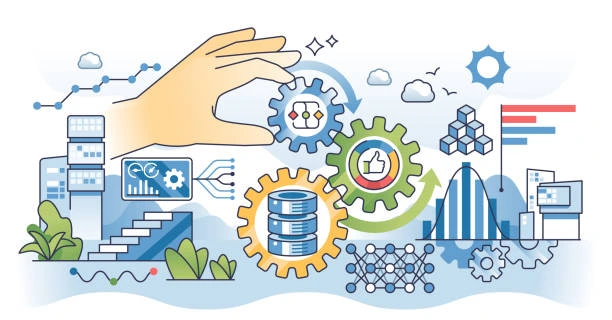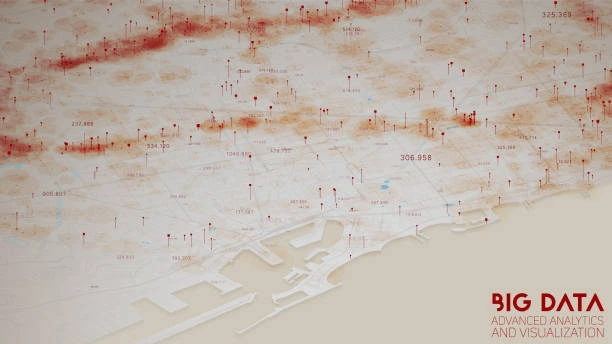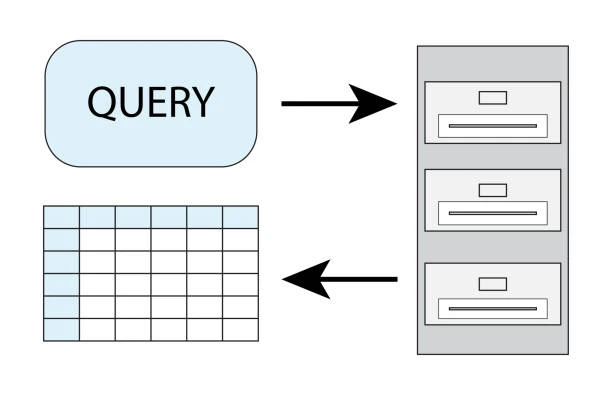Course Overview:
Data engineering has become the backbone of modern data-driven enterprises, especially in industries relying on data science and machine learning. In today's rapidly evolving digital landscape, the ability to design, build, and maintain scalable data architectures is critical. This course offers an excellent opportunity to master the skills needed to handle large data sets, automate data processing, and prepare data pipelines for efficient analysis.
Whether you are a data scientist, software engineer, or business analyst, understanding how to construct robust data pipelines and integrate them with data science workflows will give you a competitive edge in your career. You will learn to work with leading technologies in the industry such as SQL, Python, Apache Spark, and cloud-based solutions, thus empowering you to build a solid foundation for data analysis and machine learning applications.
Participants will also explore the integration of data engineering practices with data science, enabling them to provide the necessary data infrastructure for data scientists to conduct meaningful analysis. By the end of the course, participants will be adept at transforming raw data into actionable insights, enhancing their organization's data-driven decision-making process.
Duration
10 Days
Who Should Attend
- Data Engineers who want to improve their data management and pipeline development skills.
- Data Scientists seeking to deepen their understanding of data engineering to enhance collaboration.
- IT Professionals interested in transitioning into data engineering roles.
- Business Analysts and BI Professionals who want to learn more about data pipeline design and implementation.
- Software Engineers looking to expand their skill set into data science infrastructure.
Course Objectives
By the end of this course, participants will be able to:
- Understand the role of data engineering in the data science lifecycle.
- Develop, test, and deploy scalable data pipelines for large datasets.
- Implement ETL processes to clean, transform, and integrate data from multiple sources.
- Leverage cloud technologies and distributed computing frameworks (e.g., Hadoop, Spark) for data processing.
- Optimize database performance for data science applications.
- Collaborate effectively with data scientists and analysts to deliver high-quality data for insights.
- Apply best practices in data governance, security, and compliance.
Course Outline:
Module 1: Introduction to Data Engineering
- Role of data engineering in data science
- Key components of data pipelines
- Overview of data sources, formats, and integration
Module 2: Data Pipeline Design and Implementation
- Building robust and scalable data pipelines
- Batch vs. stream processing
- Data ingestion techniques
Module 3: ETL Processes
- Extract, Transform, Load (ETL) fundamentals
- Tools and techniques for ETL
- Data cleaning, validation, and transformation
Module 4: Data Storage and Management
- Relational databases (SQL) vs. NoSQL databases
- Data warehousing concepts
- Performance optimization in databases
Module 5: Distributed Computing and Cloud Platforms
- Introduction to distributed computing (Hadoop, Spark)
- Cloud platforms (AWS, GCP, Azure) for data engineering
- Data storage and processing in the cloud
Module 6: Data Governance and Security
- Best practices in data governance
- Ensuring data security and compliance (GDPR, HIPAA, etc.)
- Data privacy and ethical considerations
Module 7: Advanced Data Engineering Techniques
- Workflow automation and orchestration
- Data versioning and reproducibility
- Real-time analytics and monitoring
Module 8: Collaboration with Data Science Teams
- Aligning data engineering and data science workflows
- Ensuring data quality for machine learning models
- Best practices for communication and collaboration
Module 9: Hands-on Projects
- Building a complete data pipeline from raw data to insights
- Case studies of real-world data engineering challenges
Module 10: Final Assessment and Certification
- Practical assessment of skills learned
- Feedback and review
Customized Training
This training can be tailored to your institution needs and delivered at a location of your choice upon request.
Requirements
Participants need to be proficient in English.
Training Fee
The fee covers tuition, training materials, refreshments, lunch, and study visits. Participants are responsible for their own travel, visa, insurance, and personal expenses.
Certification
A certificate from Ideal Sense & Workplace Solutions is awarded upon successful completion.
Accommodation
Accommodation can be arranged upon request. Contact via email for reservations.
Payment
Payment should be made before the training starts, with proof of payment sent to outreach@idealsense.org.
For further inquiries, please contact us on details below:






